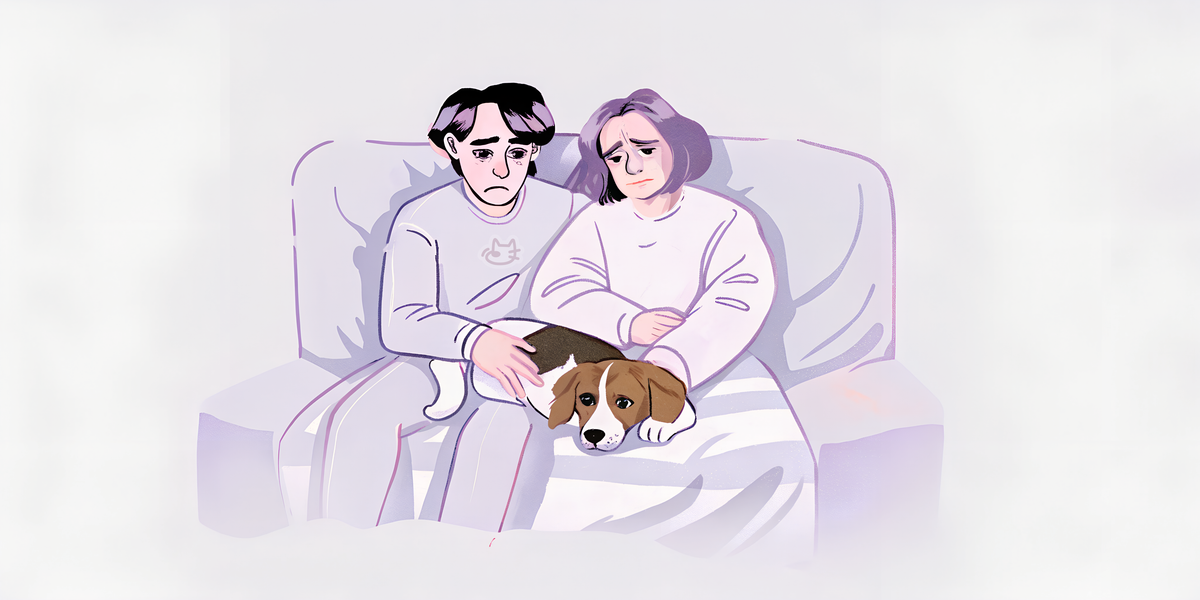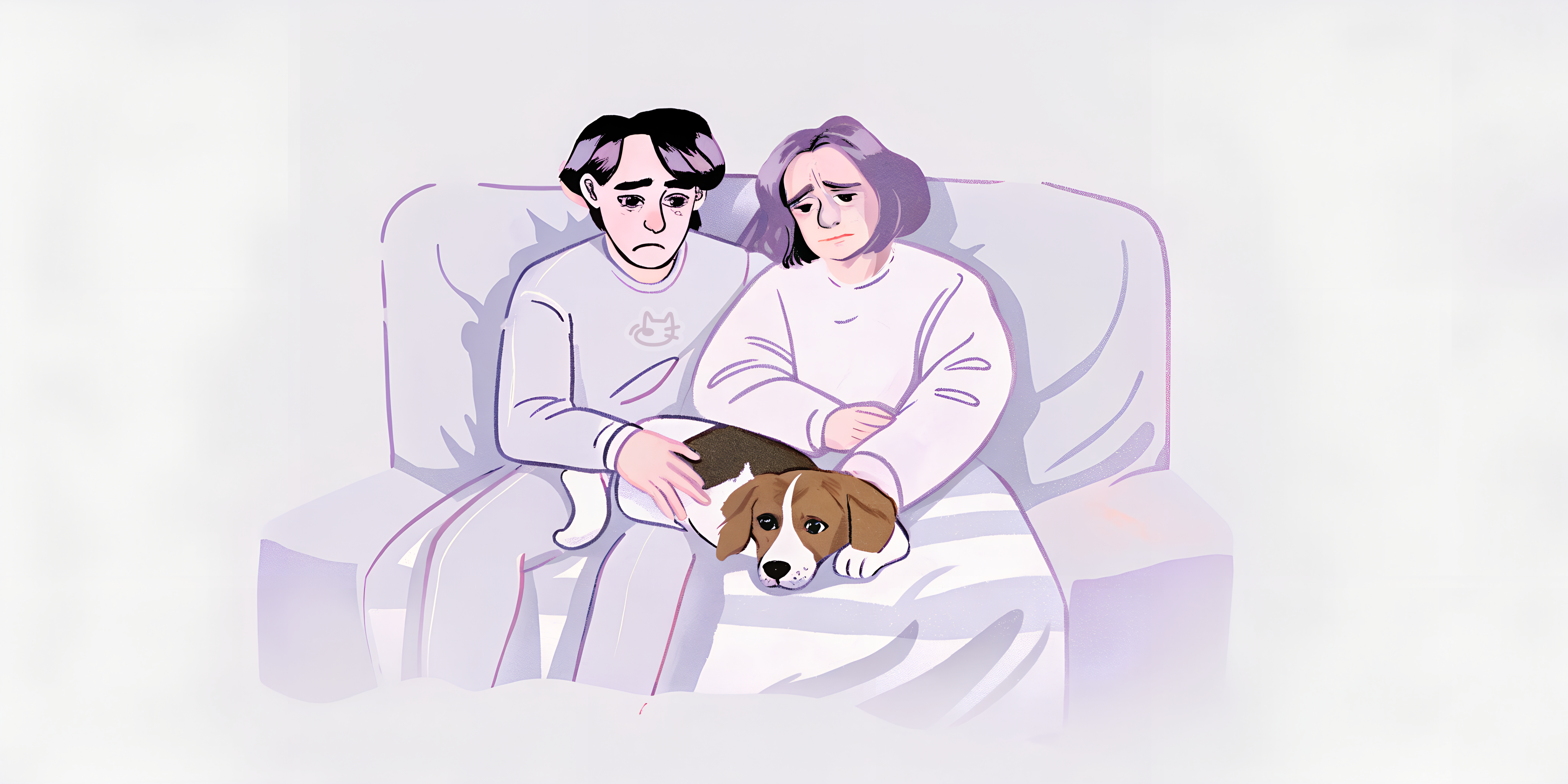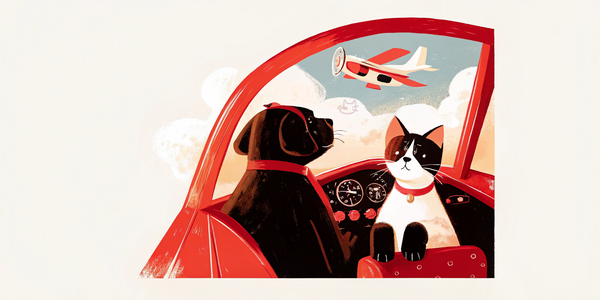The Complete Guide to Therapy Pets in India: How Your Pet Can Help Your Mental Health
Learn how therapy pets help with mental health in India. Understand ESAs vs service animals, Indian breeds for therapy, legal rights, and practical tips to start pet therapy at home.

Your dog knows when you're sad. Your cat sits on your lap exactly when you need comfort. This is not your imagination - pets really do help with mental health. In India, where mental health support can be expensive or hard to find, pets are becoming powerful allies in managing stress, anxiety, and depression.
If you're already dealing with dog anxiety issues, you know how sensitive pets can be to emotions. But here's something interesting - while your dog might have anxiety, they can also help reduce yours.

Understanding Therapy Pets vs Service Animals
Let's clear up the confusion first. Many people mix up these terms, but they're different:
Therapy Pets provide emotional comfort to their owners. Any pet can be a therapy pet - dogs, cats, rabbits, even birds. They don't need special training, just a loving nature.
Emotional Support Animals (ESAs) are similar to therapy pets but might have a letter from a mental health professional. In India, ESAs don't have special legal rights like in some Western countries.
Service Animals are trained to do specific tasks for people with disabilities. Think guide dogs for blind people. These animals go through months of training.
In India, we don't have clear laws about ESAs yet. The Prevention of Cruelty to Animals Act 1960 protects all animals, but there's no specific ESA legislation. This creates a grey area that many pet owners navigate daily.
The Science Behind Pet Therapy
When you pet your dog or cat, something amazing happens in your body. Research from UCLA Health shows that petting animals releases oxytocin, serotonin, and prolactin - hormones that make you feel good and relaxed.
Here's what science tells us:
- Animal interaction can reduce anxiety by up to 28% in hospital patients
- Cortisol (stress hormone) levels drop when you spend time with pets
- Blood pressure decreases during pet interaction
- Social engagement increases with regular pet contact
A systematic review in 2024 found that therapy animals help with depression, anxiety, PTSD, and even schizophrenia. And the best part is, you don't need a specially trained animal - your regular pet can provide these benefits.
Mental Health Benefits for Indian Pet Parents
India has unique mental health challenges. We have less than 10,000 licensed counselors for over 1.4 billion people. Therapy can be expensive, and there's still stigma around seeking help. This is where pets come in.
According to Mars Petcare's 2024 survey, 64% of young Indian dog owners say their pets help reduce stress and anxiety. Even more impressive - 66% of Indian pet owners call their pets "the most important part of their lives."
TGM Research found that 71% of Indians now own pets, with over half having two or more. Do you know the reason of this surge? After COVID-19, people realized pets provide comfort that's hard to find elsewhere.
For Indian families, pets offer:
- Daily routine - Walking and feeding schedules create structure
- Social connection - Pet owners often connect with each other
- Unconditional love - No judgment, just acceptance
- Purpose - Caring for another being gives meaning
- Stress relief - Coming home to a wagging tail melts away work stress
Indian Breeds as Natural Therapy Animals
You don't need an expensive foreign breed for therapy benefits. Indian dogs make excellent therapy companions. They're used to our climate, eat local food, and often have calmer temperaments.
Research from PMC shows Indian native breeds work just as well as foreign breeds in therapy settings. Organizations like Animal Angels Foundation use Indian dogs in their therapy programs across Mumbai schools and hospitals.
Popular Indian breeds for therapy:
- Indian Pariah - Intelligent, loyal, and adaptable
- Rajapalayam - Gentle giants perfect for families
- Mudhol Hound - Calm and affectionate
- Kombai - Protective yet loving
These dogs cost less to maintain and handle Indian weather better than foreign breeds. If you're looking for apartment-friendly options, smaller Indian breeds or Indies adopted as puppies work wonderfully.
Legal Landscape in India
Unlike the US, India doesn't have specific ESA laws. But that doesn't mean you're without rights. The Animal Welfare Board of India has issued guidelines protecting pet owners:
- Housing societies cannot ban pets
- Parks must allow pets during reasonable hours
- Barking is considered natural behavior, not a valid complaint
- Pets have the right to veterinary care
However, when traveling with pets, you'll need proper documentation. Airlines and railways have specific rules, but they don't recognize ESAs differently from regular pets.
The Rights of Persons with Disabilities Act 2016 recognizes service animals but not ESAs. This gap means many people who benefit from emotional support animals don't get official recognition.

Getting Started with Pet Therapy at Home
You don't need special equipment or training to start pet therapy at home. Here's how:
Morning Routine Start your day by spending 10 minutes with your pet. Before checking your phone, pet your dog or play with your cat. This sets a calm tone for the day.
Mindful Moments When anxiety hits, sit with your pet. Focus on their breathing, the texture of their fur, their warmth. This grounds you in the present moment.
Exercise Together Take walks together or play indoor games. Physical activity boosts mood for both of you. Check out indoor exercise ideas if you can't go outside.
Bedtime Bonding Many Indians let pets sleep in their rooms. This isn't wrong - studies show people sleep better with pets nearby. The rhythmic breathing of a pet can be incredibly soothing.
Training as Therapy Training your dog isn't just about obedience. The process builds trust and communication, strengthening your therapeutic bond.
Success Stories from Indian Cities
Across India, pets are changing lives. In Bangalore, the Animal Angels Foundation reports over 100,000 ESAs in the city alone. Their therapy dogs visit schools and help children with autism and learning disabilities.
In Mumbai, therapy dogs help in hospitals. Patients recovering from surgery heal faster when they spend time with dogs. Chennai has "Pawga" - yoga with adoptable dogs that helps both humans and animals.
Corporate offices in Gurgaon and Pune now allow pets, seeing productivity increase and stress decrease. IT professionals particularly benefit from pet therapy during long work hours.
Resources and Support
If you want to explore pet therapy further, these Indian organizations can help:
Animal Angels Foundation (Mumbai) - Provides therapy dog services in hospitals and schools
People for Animals - Offers guidance on animal welfare and therapy programs
Friendicoes (Delhi) - Helps with adoption and basic therapy pet guidance
Blue Cross of India - Provides veterinary support and adoption services
Online communities on Facebook and WhatsApp connect pet parents across cities. Search for groups like "Pet Parents of [Your City]" to find local support.
Making the Decision
Research from Statista shows India will have 51 million pet dogs by 2028. This growth reflects our changing understanding of mental health and the role pets play.
Before getting a therapy pet, consider:
- Your living situation and space
- Time available for pet care
- Financial ability to provide food and medical care
- Family members' comfort with animals
- Long-term commitment (dogs live 10-15 years)
Remember, pets aren't a replacement for professional mental health care when needed. They're companions who support your journey. If you're dealing with serious mental health issues, please seek professional help alongside pet therapy.
The beautiful thing about therapy pets in India is that we've always understood the human-animal bond. From feeding street dogs to considering animals family members, our culture embraces this connection. Now, science is proving what we've always known - pets truly do heal hearts and minds.
Whether you adopt an Indian street puppy or already have a pet at home, you have access to one of nature's most powerful mental health supports. Your pet doesn't need a certificate or special training. They just need to be themselves - loving, present, and ready to help you through life's challenges.




